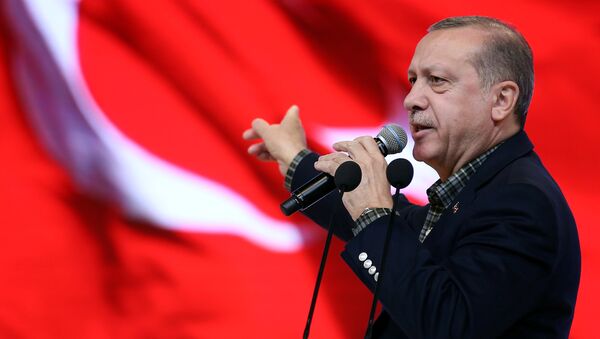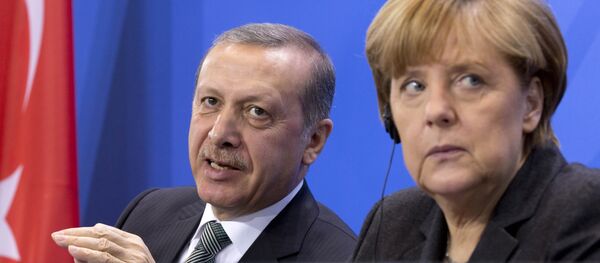MOSCOW (Sputnik) — On Monday, EU foreign policy chief Federica Mogherini and EU Commissioner for European Neighbourhood Policy Johannes Hahn said in a joint statement that the European Union would assess planned Turkish constitutional changes to increase the president's powers, which are set to be put to referendum in mid-April, and urged Ankara to "refrain from excessive statements and actions that risk further exacerbating the situation."
"The EU should realize that the statement fuels extremism, such as xenophobia and anti-Turkish sentiments because the call to refrain from excessive statements and actions that risk further exacerbating the situation is made only to Turkey, instead of the countries that caused this situation by violating diplomatic conventions and international law," the Turkish Foreign Ministry said.
Ankara has attempted to lead a pre-referendum campaign among Turkish expats in Europe, but several rallies have been cancelled in Germany, Switzerland and the Netherlands.
Amsterdam and Ankara are currently in a diplomatic standoff, as Turkey sent the Netherlands two diplomatic notes Monday criticizing the treatment of Turkish Foreign Minister Mevlut Cavusoglu, who was denied entrance to the consulate in Rotterdam on Saturday, and the "disproportionate" Dutch police response to a gathering protesting the ban.
Turkish Family and Social Affairs Minister Fatma Betul Sayan Kaya was also denied entrance to the Turkish consulate in Rotterdam on Saturday, with Dutch police blocking her car and the authorities ordering her deportation.
The proposed constitutional amendment would increase the presidential powers over the legislature and the judiciary. The president will also be able to remain the head of the political party he represents, which is not allowed by the current legislation.
The Turkish referendum on the constitutional changes is scheduled for April 16.
Never miss a story again — sign up to our Telegram channel and we'll keep you up to speed!



